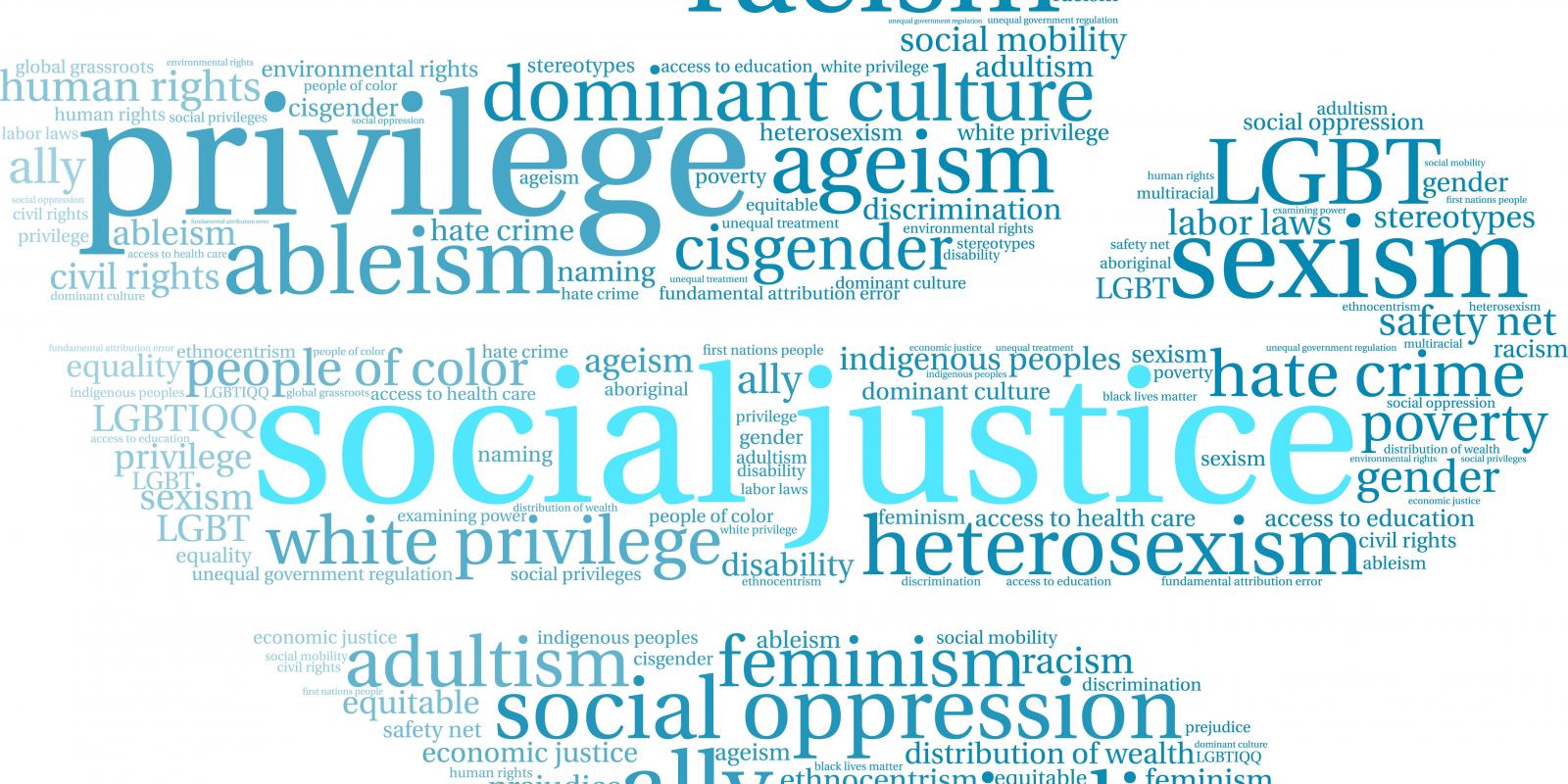On Oct. 2, the week in which ASA and 100s of thousands of others drew positive attention to Ageism Awareness Day, The New Yorker chose to publish a cover by Barry Blitt that managed to be both ageist and ableist. Several prominent gerontologists and others sent letters to the editor at the storied publication, which were roundly ignored. We decided to run them instead.
David Remnick’s headline asserts that his column “The Washington Gerontocracy” (Oct. 2) “cannot be dismissed as ageism”—although calling 2023’s political choices “a contest of the ancients” when these “ancients” have nothing in common but age makes him sounds like the kind of people who assert “I’m no racist.”
Appealing to the ageism that pollsters can easily provoke after COVID killed 800,000 people older than age 65 does not reach the magazine’s usual level of political sagacity.
The New Yorker‘s pattern of ignorant ageism is becoming obvious, and we are not amused. The cover by Blitt (same issue, doubling down) that draws four leading political figures on walkers conflates later life with disability, a noxious error that undergraduates quickly unlearn in their very first course on “aging.” Humor often depends on stereotypes, but The New Yorker editors know to eschew them in covers where, say, race is concerned.
All of my best friends are relatively old. Some of us have a monthly Zoom meeting to exchange news and opinions: These are fascinating. I never thought when I was 18 that the people I would most want to hear from would be 80-plus. Considering our lived realities, how disappointingly expectable that Lore Segal’s short story “On the Agenda” (Sept. 11) has nothing on its agenda but relentless and rapid decline, until her West Side women—recently all capable of Zooming together—implausibly lose all interest even in meeting again.
Only The New Yorker, in its benighted latest phase, would publish so remorseless a fiction; in offering it, Segal knew her market.
Margaret Morganroth Gullette is the author of Ending Ageism, or How Not to Shoot Old People, which was reviewed in The New Yorker.
The cover of your October 2 issue is appalling. If these people actually used mobility aids, would it disqualify them for political office? In an ageist and ableist world, yes. Shame on The New Yorker, yet again, for sanctioning discrimination—especially in a world of longer lives.
Ashton Applewhite is the author of This Chair Rocks: A Manifesto Against Ageism, a co-founder of the Old School Anti-Ageism Clearinghouse, and at the forefront of the emerging movement to raise awareness of ageism and to dismantle it.
As an older adult and a gerontologist, I am compelled to say that your cover illustration presents a very serious problem: While it may depict the current ageist zeitgeist, know that editorial decisions like yours, which feed such anti-aging sentiments, hugely contribute to that zeitgeist. Too many people are wrongfully concluding that age should be a factor when determining a candidate’s fitness to run for or hold office. Competence, not age or physical disability, should be our criterion. The cartoon omits any possibility that what is depicted needs to be criticized. Instead, readers are left assuming that The New Yorker shares the illustrator’s prejudiced view. For the sake of promoting our democracy, please be responsible journalists and do a better job.
Jeanette Leardi is a social gerontologist and community educator, and can be reached at jeanetteleardi.com.
The New Yorker‘s lapse into bias with its false “gerontocracy” cover illustration of congressional leaders promenading on their walkers not only belies their capability—and as a San Franciscan, I’ll be glad to vote again for Nancy Pelosi, the most adept congressional mind of recent years—but of the fallacy of young blood. Has anyone at The New Yorker been watching the coagulated nature of young blood in our political veins? How about Matt Gaetz, 41, Jim Jordan, 59, Lauren Boebert, 36? As an independent voter, I know one wouldn’t have to look far down the list of Democrats to find a new, less effective younger members of Congress, but then they did also bring on a pretty smart one to rejuvenate House leadership as Minority Leader in Hakeem Jeffries, 53.
For all of that, the best answer anyone might incant magically against ageism comes from the world of music—Keith Richards, 79! Add his older buddy, Mick Jagger, 80. Now, there’s a ticket of super aging that even The New Yorker‘s cover editor could vote for.
Paul Kleyman, the former editor of Aging Today (now Generations Today), wrote the book Senior Power: Growing Old Rebelliously (1974), was Elders Newsbeat Editor at New America Media/Pacific News Service and now is National Coordinator of the Journalists Network on Generations and editor of Generations Beat Online News.
Why do Ageism and Ableism Get a Pass?
It has become increasingly challenging to escape the ageist and ableist rhetoric that permeates contemporary political discourse. With an impending election and an electorate in which the age of multiple candidates remains a focal point, this issue will persist for the foreseeable future. What remains conspicuously absent from these conversations is a critical examination of why this rhetoric is misguided and dangerous.
Ageism rears its head when we draw conclusions about people solely based on age. This is particularly problematic because age, in isolation, provides little insight into a person beyond the mere number of years they have spent on this planet. Most significantly and contrary to popular belief, age alone is a woefully inadequate predictor of one’s health and competence. It fails to illuminate a person’s values, ideologies or abilities. This isn’t an opinion; this is science.
Nevertheless, these simplistic, reductionist and dangerous assumptions about age persist. Fallacies about aging are often perpetuated because it is the path of least resistance, requiring little effort or thought. Ageism and ableism go unchallenged, whereas other forms of discrimination and bias would not.
Ageism and ableism have surreptitiously woven into the fabric of acceptability within our society. For instance, consider the recent cover of The New Yorker, which depicted older politicians running a race while using walkers. The fact that none of the people depicted in the illustration actually use walkers doesn’t even seem to register as the lie that it is. That said, what would be the problem if they did?
Such illustrations betray a troubling lack of awareness regarding overt and covert biases against older people and those with disabilities. Adding insult to injury, the article’s author employs self-deprecating ageism as a weapon. It’s as though we believe that targeting ourselves exempts us from perpetuating prejudice under the guise of humor. If we aim the insult at ourselves, it doesn’t count, right?
I can already hear you telling me to “lighten up” and to “get a sense of humor.” I can hear others telling me I am “too sensitive” and being “politically correct.”
In a preemptive response, I offer this: I get it. I really, really do. But this isn’t me being the humor or language police. There is a wealth of scientific data about aging and ageism that has yet to break through all of the rhetorical noise and reach the everyday person.
Did you know that negative messages about aging reinforce fears that deprive us of years of happiness, purpose and longevity? They do.
Did you know that ageism and ableism significantly impede the growth of businesses by limiting their consumer base and hindering talent retention? They do.
Remember that you are aging, too. We are all aging every moment of our lives. When we repeatedly denigrate and oversimplify older age, we inevitably and inadvertently foster inhospitable environments for all, including our future selves.
Tracey Gendron, PhD, is Chair for the Virginia Commonwealth University Department of Gerontology and Executive Director of the Virginia Center on Aging. She is author of the book, Ageism Unmasked: Exploring Age Bias and How to End It.
I found the cover of The New Yorker (Oct. 2) startlingly ill-conceived and unfortunate. The parade of four elderly politicians—Biden followed by Pelosi, McConnell, and Trump—using walkers struck me as a glaring example of ageism and ableism, helping to perpetuate the vision of old folks as objects of jokes and stereotypes. The cover serves to reinforce notions of helpless old people, often good for a laugh. Further, as an 82-year-old who must rely on a walker after knee surgery, I find the image on the cover personally offensive and hurtful. Using my walker around town makes me self-conscious and uncomfortable, acutely aware of my status as “handicapped” and not the person I used to be. Admittedly, most people are sympathetic and helpful, stepping forward to help me navigate heavy doors; total strangers sometimes go out of their way to do so, but they also serve to reinforce my status of infirmity. Actually, the cover is insensitive to people of any age who are partly incapacitated with mobility issues. Having to use a walker is no joke at any age.
Jane W. Shuffelton retired from more than 40 years of teaching French, Russian and Spanish in pre-college public schools. A past president of the American Council of Teachers of Russian and a co-author of the Standards for Learning Russian, she was awarded the prestigious Pushkin Medal by the International Association of Teachers of Russian, and lives in Rochester, NY.
How does a magazine that commendably prides itself on avoiding sexism, racism, homophobia and ridicule of the disabled, choose to publish your destructive, hurtful and ageist Oct. 2 cover? Why is it acceptable for you to poke fun at older Americans, while you so kindly and appropriately strive to show respect for other potentially stigmatized groups?
I and the older Americans I know are able-bodied and able-minded. We hold society’s history. Our ability to recognize previous patterns and pitfalls is invaluable. Not to brag, but many of us would make vital and effective presidents.
Please apologize for negatively stereotyping a group that has contributed so much and will contribute much more. Please add Ageism to your list of attitudes to avoid. Insulting us is beneath you. Your insults are definitely way beneath us.
Ann Porter, LFMT, is in her early 80s and a clinical social worker in private practices in Cambridge, MA.













